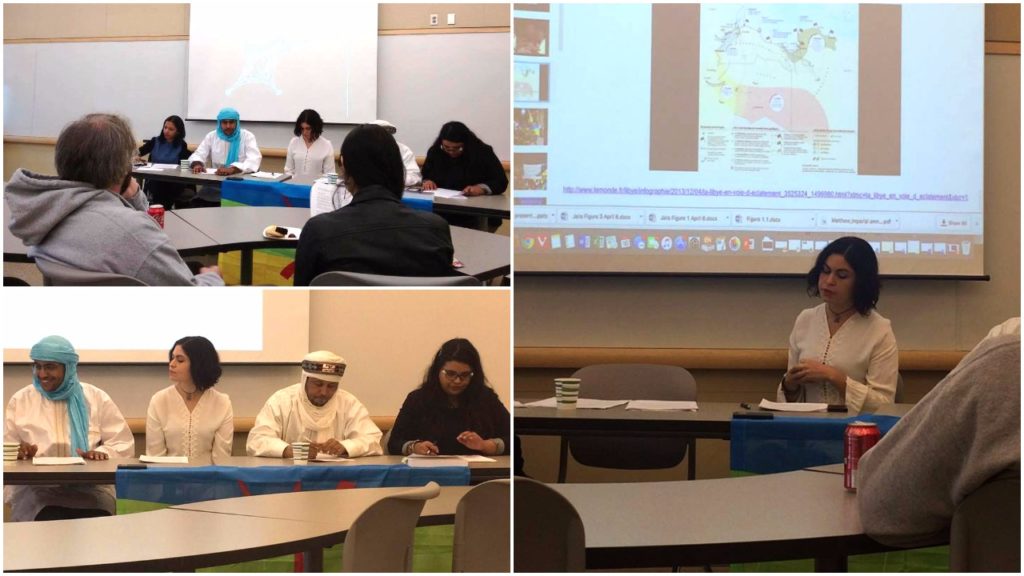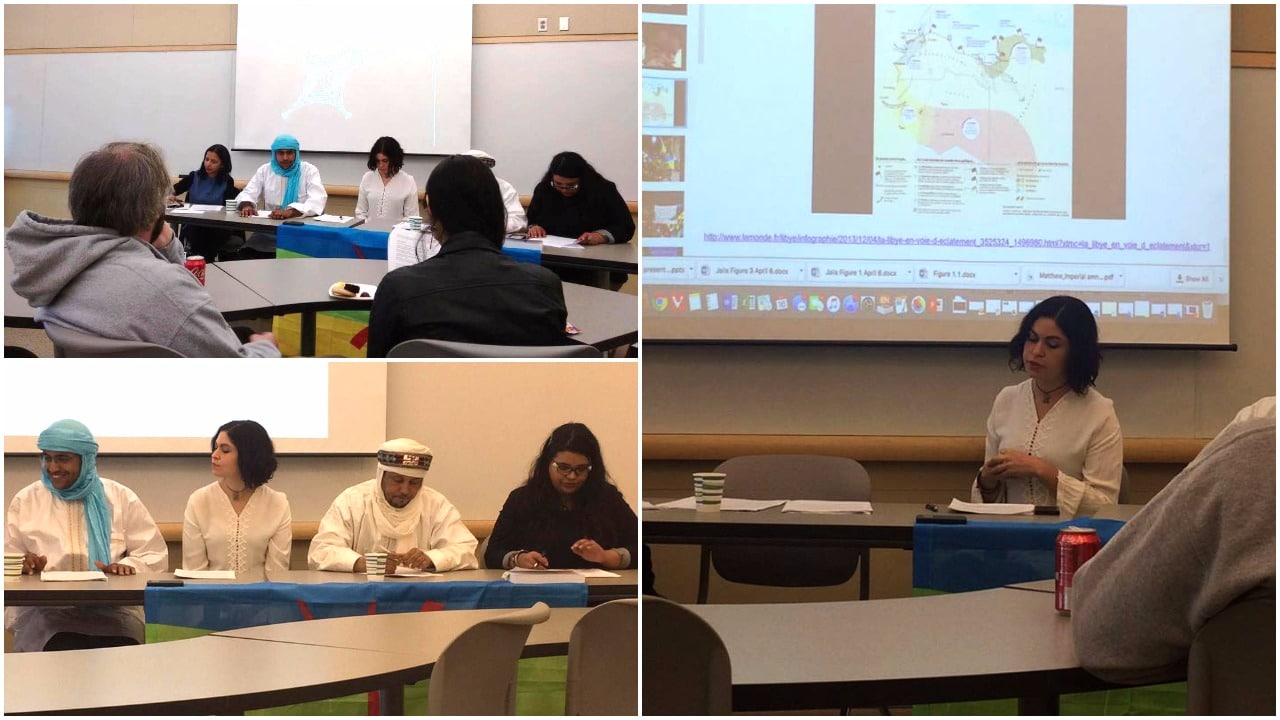
Prepared by Eden Almasude,
On April 16th, five Amazigh students and activists formed a panel at the World Historical Social Science conference at Binghamton University. Each presented their research on various issues facing Tamazgha, with significant themes of religion, gender, nation-state structures, and environmental exploitation, followed by a period of questions and discussion.
Inas Miloud, a graduate student in Gender Studies from the Nefusa region and Fulbright scholar at Minnesota State University – Mankato opened the panel by discussing the challenges faced by the Tamazight women’s movement and how women activists navigate their identities as both women and Imazighen.
Next, Akli Sh’kka from the Imouhagh International Youth Organization, spoke about the rise of Islamic extremism in the Sahara (the traditional lands of the Tuareg people) and how this has contributed to the destruction of culture and traditional values.
Akli Mouhamadine, an Imouhagh student from Niger at Portland Community College, presented on French and Nigerien exploitation of the natural resources of the desert in northern Niger, highlighting the importance of the land to our identity and survival as Imazighen.
Eden Almasude, a Rifian medical student from the University of Minnesota, discussed the underlying philosophical framework of Amazigh autonomy movements, using as a case study Tira-negh, an organization dedicated to the self-determination of the Amazigh regions of Libya.
Other panels at the conference covered such topics as the Kurdish movements in Turkey and Syria, language and identity, forms of social control, and educational reform.

